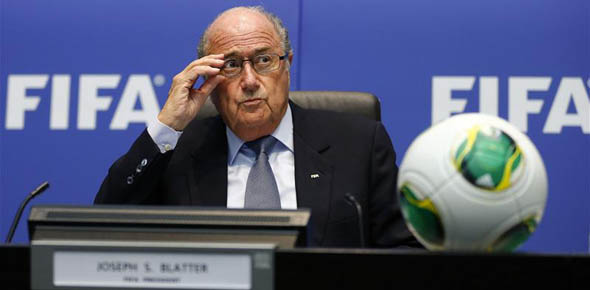EXCLUSIVE: Developing Football around the World
August 2, 2016
FIFA is going through, perhaps, its toughest time ever. A scandal removed its last president, courts around the world are combing through its documents, and the newly elected president is fighting ethics charges.
While the antics of the executive committee get the press talking, and have hit FIFA’s reputation hard, FIFA have been trying to get on with their day to day purpose – developing football around the world. FIFA announced in March it will spend nearly $1.5 billion on developing the sport globally- a new record.
Mike Pfister is the senior development manager at FIFA, and said that investment in the game has never been so high:
“Right now what you can definitely say is that we are on the upwards trend in terms of the investment that we are putting into football development. The means that FIFA is putting at the disposal for the development of football across the world – that’s never been so high. There is a strong upward trend in terms of the focus and the investment. We are putting in a lot of financial might and power into the investment of of football. We are reinvesting the money that comes into football, back into football.”
However, the scandals that have engulfed FIFA over the last few years have hurt the organisation. Its 2015 accounts showed a loss of $105m, the first time since 2002 that FIFA has posted a loss. Such a turbulent time affects all areas of the business. Pfister admits the current climate is challenging, and that changes are needed, but is confident people will regain trust in the organisation:
“The landscape which is gaining the attention of the global media is a small segment of the whole work that FIFA does. FIFA has always been a strong player in the development of football. Going forwards, a lot of changes need to take place, and are taking place. Reforms are never easy. Reform is a marathon without a finish line, you’ll never feel finished. In terms of development, there has never been as much focus on development as there is now. We believe in this model, we are absolutely confident that eventually people will start to regain trust in FIFA as an organisation – when all this hard work comes to the fore again and shines through the negative news stories that come out.”

Pfister and his team are looking globally, but one country in particular is moving at a sensational speed in their quest to develop the game: China. Many are predicting China will become a footballing superpower one day – they have ambitions of hosting a World Cup in the 2030s. But Pfister believes they are already there:
“It depends what you consider a world superpower. That could be in the performance of its club teams and of its national team. But I think that in terms of the masses that support the sport, it is already a global power. Some of our European clubs would dream to have some of the fan bases that the Chinese clubs have. In many ways it is already a power. Of course you have to translate that into high performance football, and go on elite football and focus on the communities and the countryside and increase inclusiveness of football participation.”
“Football is a global phenomenon, but football trends also follows economic trends. So Asia is looking like one of the key points on the radar. That’s not only because of the talent that you see which has growing momentum, but also it is backed by financial might, and high growth rates within this market. That’s a very good ingredient to the popularisation of football.”
Such a ringing endorsement of the state of Chinese football, by one of the key men tasked with growing football globally, is significant.
Businesses linked to football would do well to listen closely to Pfister – as football continues to expand into emerging markets.



